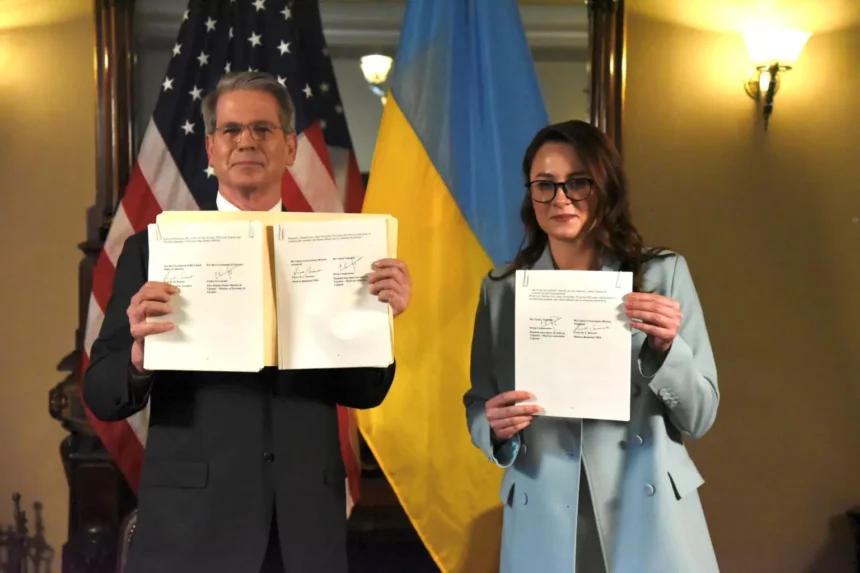The Kremlin on Thursday lashed out at President Donald Trump’s mineral deal with Ukraine signed on Wednesday, dismissing it as a “neocolonial” ploy that will ultimately hasten Kyiv’s downfall.
Speaking from Moscow, Deputy Chairman of Russia’s Security Council Dmitry Medvedev accused the United States of strong-arming Ukraine into “paying for military aid with its own mineral wealth.” He derided the pact as a “masterstroke” for Washington—one that enriches U.S. defense industries while undermining Ukrainian sovereignty.
Under the April 30 accord, Washington and Kyiv will co-fund a Reconstruction Investment Fund designed to channel profits from future extraction of rare-earth elements, iron, uranium and natural gas back into Ukraine’s recovery. Each partner will hold a 50 percent stake in revenue from new permits, with initial earnings earmarked for infrastructure rebuilding.
The mineral deal came through days after Trump met with the Ukrainian President Volodymyr Zelenskyy at Pope Francis’s funeral at the Vatican City last Saturday.
Dismissing the mineral deal, Medvedev predicted the “Kyiv regime will soon disappear,” arguing that tying Ukraine’s survival to extractive projects only deepens its reliance on American support. He warned that any benefits the pact brings to Ukraine would be “short-lived” and contested Moscow’s portrayal as the aggressor in the four-year conflict.
Across the Atlantic, U.S. lawmakers and administration officials defended the agreement as a shift toward a more sustainable aid model. Representative Joe Wilson of South Carolina praised the requirement that Ukraine reimburse the United States for weapons deliveries, and he urged Congress to strengthen enforcement of secondary sanctions on Russia to accelerate an end to the war.
Supporters in Washington say linking reconstruction aid to tangible resource revenues ensures continued American engagement and attracts private capital to Ukraine’s shattered economy.
They argue the fund will help lock in future rounds of security assistance—potentially including advanced air-defense systems—while bolstering Kyiv’s position in any postwar negotiations.
Russian state media, however, portrayed the pact as evidence of U.S. “economic imperialism.” Commentary outlets cautioned that Kyiv’s dependence on foreign investment could undermine its European integration ambitions and leave it vulnerable to shifts in Washington’s political winds.
As both sides prepare to operationalize the new fund, Ukraine’s parliament must approve implementing legislation before the arrangement takes effect. Observers say the vote—expected in May—will be a key test of Kyiv’s resolve to balance foreign aid with national control over its natural resources.
Whether the agreement ultimately cements U.S.–Ukraine ties or fuels further Kremlin ire, it marks a significant milestone in the war’s economic dimensions—and highlights how deeply resource politics remain entwined with the fight for Ukraine’s future.
With News Agencies





